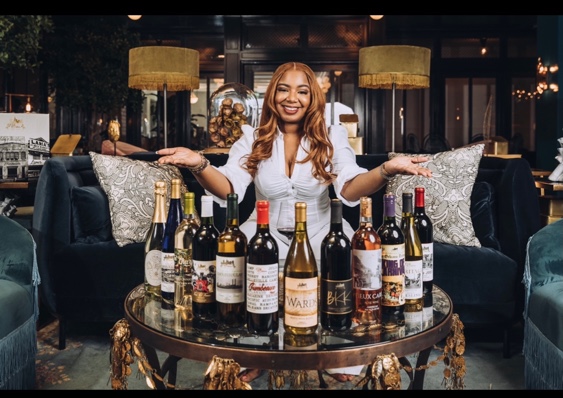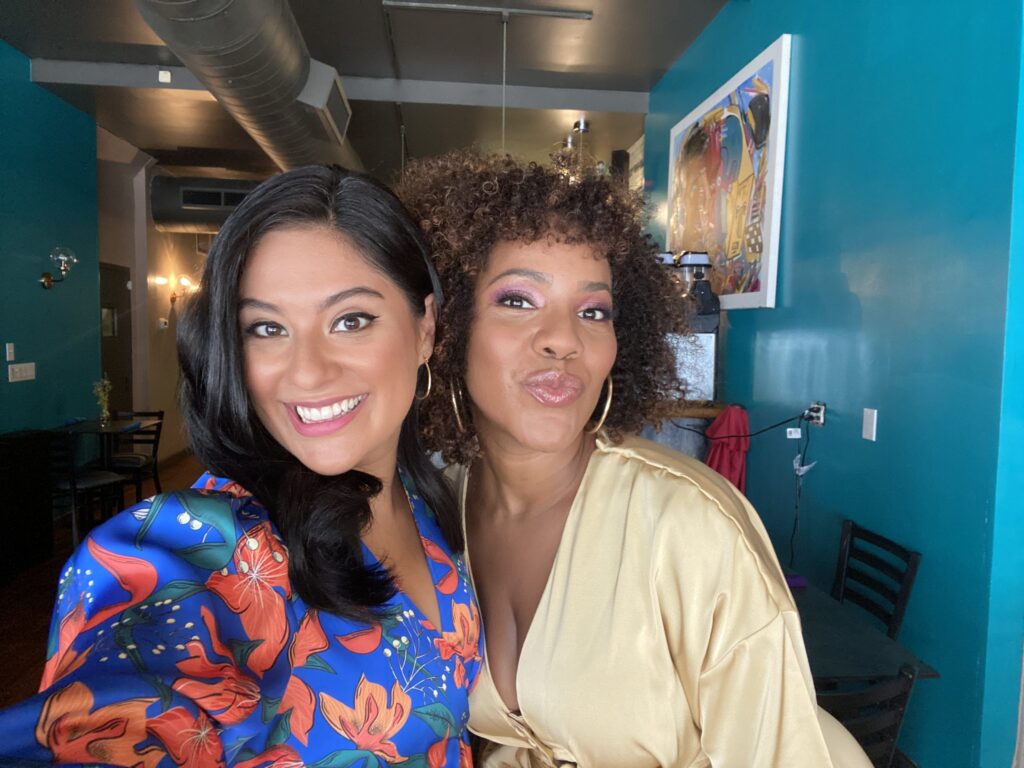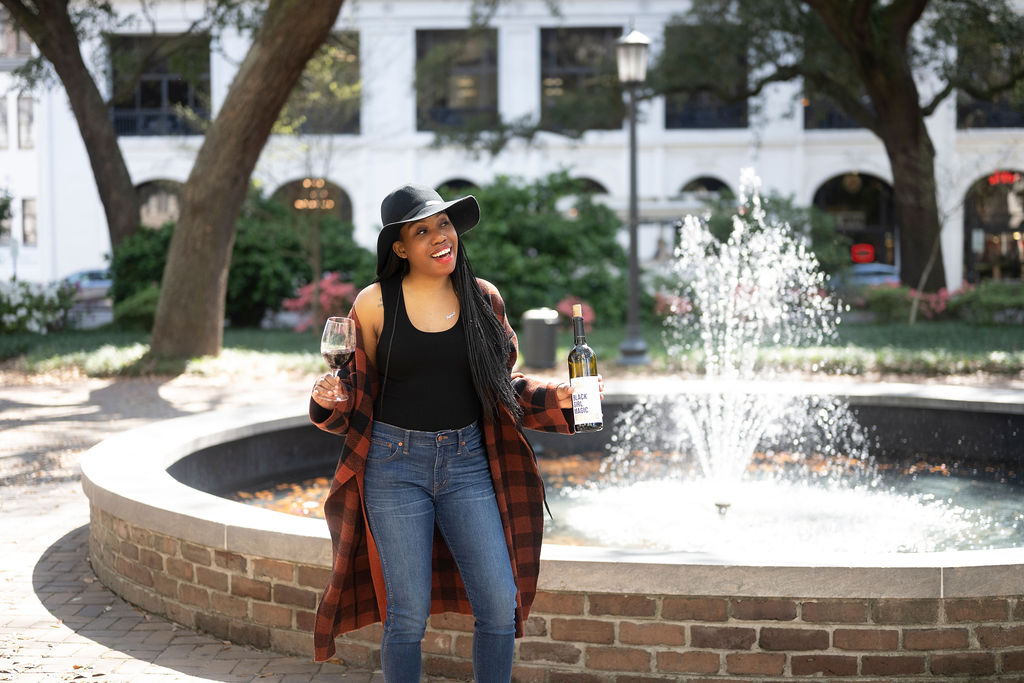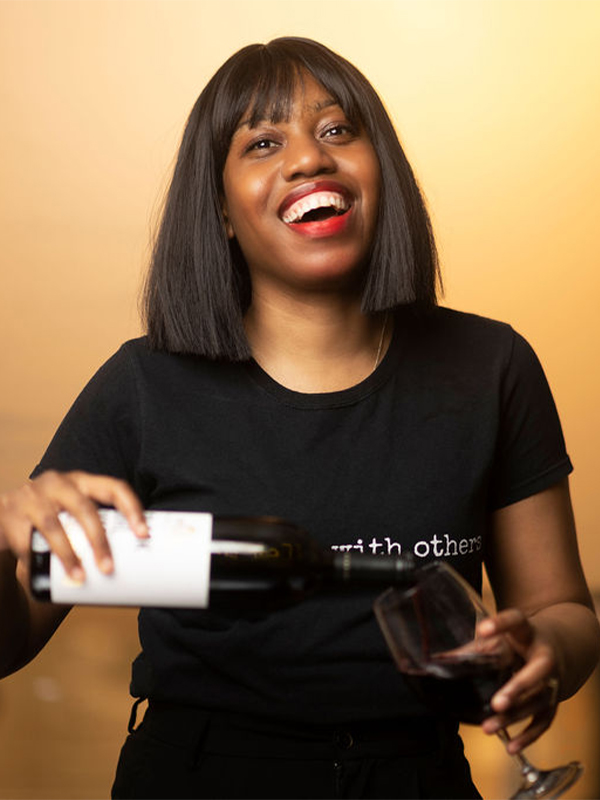As with many industries and sectors, the wine industry was faced with its own set of unique challenges at the onset of the pandemic. But instead of looking at the wine glass as half empty, industry professionals became agile, creative and resilient in order to best serve the masses.
These five women of color are some of the many wine professionals who have pivoted to educate and entertain in new, innovative ways. They are empowering people of color to explore wine differently, while keeping the concept of community at the helm of everything they do. See how.

For Kim Lewis, founder and CEO of Ole Orleans Wines & Spirits, her experience as a business owner and teacher helped her to jump into creating a wine brand. Inspired by her hometown of New Orleans, travels and love for wine, Lewis initially launched Ole Orleans online in 2018. She partnered with Landry Vineyards in Monroe, Louisiana, to create two wines to introduce to her audience, but given the overwhelming feedback and response, she quickly learned it was going to take more to keep them hooked.
More came in the form of new varieties, but it also came in the form of building a community. While the winery is currently closed for in-person tastings, Lewis makes sure to still engage with followers of the brand as much as she can. “I’ve gotten on Instagram Live some days, and people start buying products immediately,” she says. “Even in the midst of a global pandemic, I was able to take what started as an online company and expand it into Texas, Alabama, Tennessee, Florida, New York and California. Just to see how many people really showed up to say, ‘hey, we’re behind you, we support you, and we appreciate you for bringing something new and different into the city,’—I’m very grateful for that.” Today, Ole Orleans Wines is one of the fastest-growing wine companies in the south, with 18 different types of wines, 12 of which are currently on the shelves of major retailers such as Trader Joe’s and Costco Wholesale.
Alexandra Schrecengost, a former communications executive for a major wine wholesaler, recognized the lack of diversity and inclusion within the industry. She launched her company, Virtual With Us, in March 2020 in response to how the pandemic devastated the hospitality industry. The company curates virtual and hybrid wine experiences for business events.
“When we started, it was so small,” she recalls. “In the first month, we had two events. And now, we’re running up to 90 events a month and doing 30 corporate gifts a month. Thousands of boxes are going out globally in the six living continents, and my team is crushing it every day.”
As part of each experience, her team curates boxes that spotlight small businesses and brands from all over the world. “We’re very hard-pressed to support women in business, Black-owned businesses and people of color in general,” she says. “Everybody needs to have a chance if they have a small business, and as long as their product is good, it’s going into our box.”
This spring, Schrecengost will be partnering with The James Beard Foundation’s women in leadership initiative to launch a grant that will help aspiring women leaders. “The grant will allow the opportunity for more female leaders to either launch their own business and become an entrepreneur, or to use the grant for school for education,” she says.

When they met in 2018 as public relations professionals, Lydia Richards and Maria Calvert would often notice that there were very few Black or Brown wine professionals present at major industry events or invited to attend press trips. During the summer of 2020, at a time when conversations about race, diversity and inclusion were at their peak in the United States, Richards and Calvert launched Hispanics In Wine to celebrate Hispanic and Latinx professionals in beverage and hospitality, and provide opportunities for career advancement.

“I started my career in finance, and there were often Spanish language materials, marketing efforts and other focused initiatives to our community,” says Calvert. “Entering the wine industry and not seeing that support in Spanish language was just kind of breathtaking [given] the wealth of talent [that comes] from this community—from vineyard stewards and importers to executives and retailers.”
Richards and Calvert embrace collaborating with other organizations to show the industry that diversity and accessibility must remain a priority. “Since June 2020, there have been a number of diversity initiatives established across the industry, and I think it’s wonderful because at least it’s opened a couple of doors in a sense,” says Richards. “But we really want to make all of this sustainable; it can’t simply be performative. We need people in executive positions, gatekeepers of the industry and allies to be intentionally onboard to push for long-lasting change.”
In the year ahead, Hispanics in Wine will continue offering more scholarships and educational opportunities for its members, as well as discovering how they can expand networking events. “Our inaugural LatinX State of the Wine Industry Summit last October was an opportunity to let the industry and consumers know that we are here and committed to building something sustainable,” says Calvert. “We’re also learning as we’re building, so this year, we want to continue leveraging resources and find key strategic partnerships so that we can connect professionals with the consumers.”

Certified wine and spirits instructor Dayna Lee had a late start in the wine industry, but she didn’t let it stop her. “A lot of people had 10 or 15 years ahead of me in their careers,” she says. “Traditionally, people in this industry get their start at a wine shop, wine bar or restaurant, and that’s how they learn about wine. Spending my career in higher education, I’ve used transferable skills to support my passion of teaching people about wine.”
Lee is preparing to open the Savannah Wine Institute to the public this spring, which will offer a plethora of opportunities for people from all walks of life to learn about wine and spirits.
“The goal is to have professionals come into the space, lecture about their particular regions and conduct tastings,” says Lee. Additionally, the academy will also offer food and alcohol safety classes for hospitality professionals. “Nothing like this exists in Savannah, so I’m really excited to bring something that the city has been looking for and to continue sharing my love for wine and spirits.”







